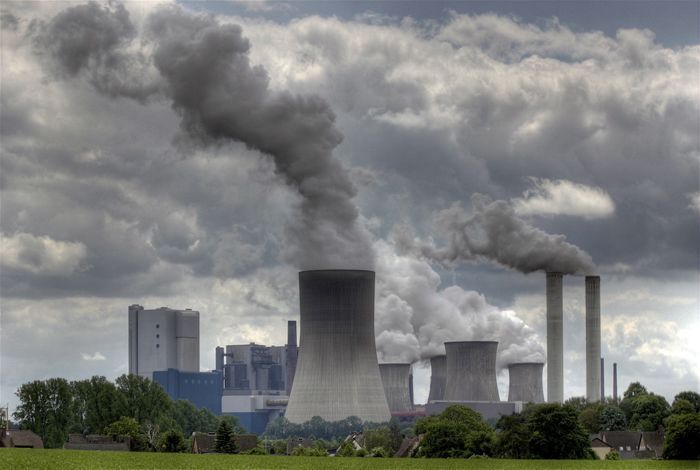 Starting January 1, 2013, Kazakhstan will launch a mechanism of selling quotas on greenhouse gas emissions.
Starting January 1, 2013, Kazakhstan will launch a mechanism of selling quotas on greenhouse gas emissions.
Atyrau hosted a seminar attended by managers of major organizations in West Kazakhstan, organized by Kazakhstan's Ministry of Environmental Protection and UN Development Program.
Main issue dicussed was how to make reduction of emissions a profitable business for organizations.
Today Kazakhstan is the world's 17th in greenhouse gas emission per capita.
The largest contribution is put by energy sector that uses coal, oil and gas.
Further uncontrolled use of these resources will lead to a more intense warming of the climate, expansion of deserts and deterioration of ecologic systems.
At the seminar, it was mentioned that Kazakhstan is already experiencing these problems in the form of expansion of desert and semi-desert areas, depletion of water resources and increasingly frequent floods and mudflows.
In 2009 Kazakhstan ratified Kyoto Protocol, by doing so it joined the world's movement to stop global warming.
The country undertook liabilities to minimize emission of greenhouse gases to the air by 15% before 2020 and by 25% before 2050.
For this, Environmental Ministry in association with UNDP is working out Kazakhstan's transition to green economy strategy, based on the practice of the US, Europe, South Korea and Australia.
The idea of trading emission quotas was proposed by a Canadian economist John Dales in 1968.
In 2003, European parliament approved the scheme of selling greenhouse gas emission quotas within the EU.
Chicago Climate Exchange is the largest board to trade emission permits in the world today.
One of key elements in transition to green economy is regulation of greenhouse gas emissions.
Ministry developed a national plan to distribute the quotas.
Quotas will be given to major organizations in oil and gas, energy, metallurgy and other industries where carbon dioxide emissions exceed 20,000 tons a year.
There are 178 such organizations in Kazakhstan that contribute 80% of all greenhouse gas emissions in the country.
Among them are large oil companies working in Atyrau Oblast, as well as Atyrau Refinery and Atyrau's Heat and Power Station.
Aida MAKAZHANOVA, chief expert with low carbon development department of the ministry, explained the mechanism of trading greenhouse gas emission quotas:
"We took 2010 as a basis to calculate quotas. Every organization, depending on specifications of the equipment, will receive a certificate in the Ministry of Environmental Protection for greenhouse gas emissions. Organizations that are ahead of schedule will be able to sell the remaining part of their quotas to those behind the schedule. The system will stimulate minimizing emissions thanks to using 'green' technologies. We will be punishing those who can't confine themselves within their quotas -- that's a penalty amounting 10 monthly calculation indexes per one 'extra' ton. In 2013, a pilot year, penalties won't be imposed."
Quota trading will be executed in the domestic market, but, as stated in the ministry, Kazakhstan has good opportunity to enter international market as well.
It is still unknown for what price will saved bit of a quota be sold.
It depends on future supply and demand.
Judging by the global practice, the price of this unusual good fluctuates between 10-15 euros per ton of greenhouse gas in the European exchange and up to 150 euros in that of Tokyo.
- We conduct seminars in all the regions of the country. In general, organizations are showing support to the new system bringing in their own proposals to enhance it, says Saulet SAKENOV, UNDP Project Manager.
It's worth mentioning that not a single TCO, NCOC and ANPZ representative attended the seminar.
By Tamara SUKHOMLINOVA
 В Атырау -10
В Атырау -10